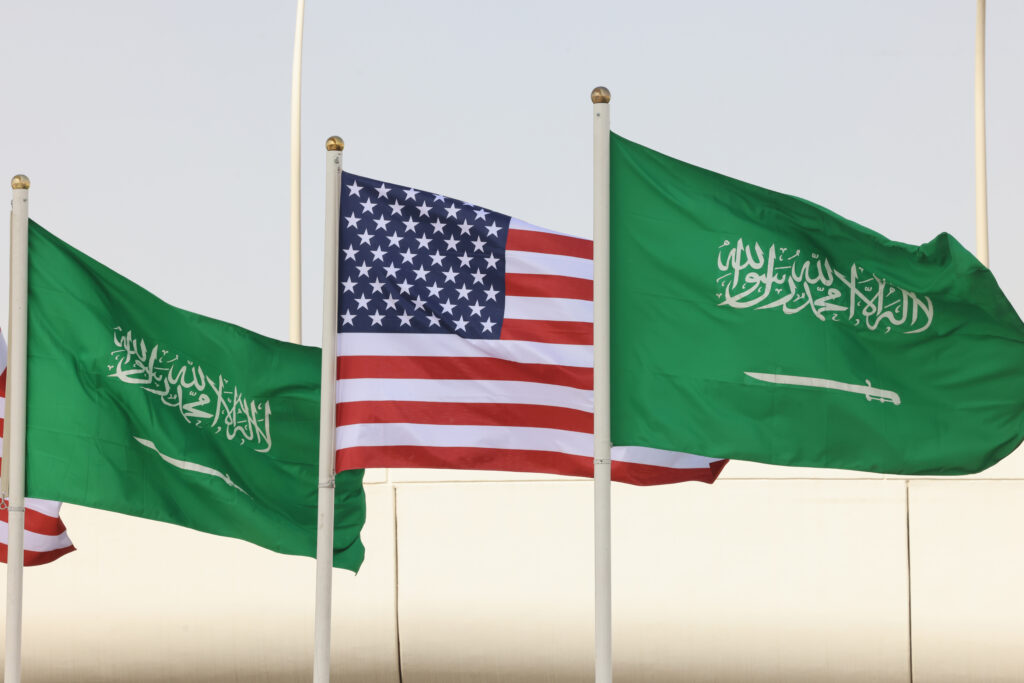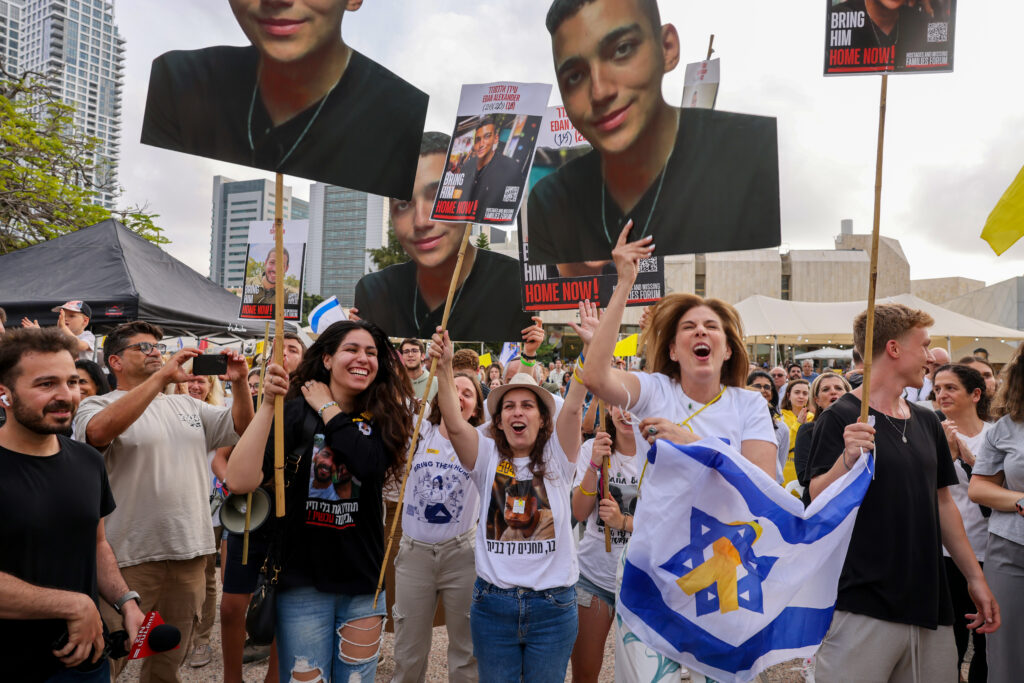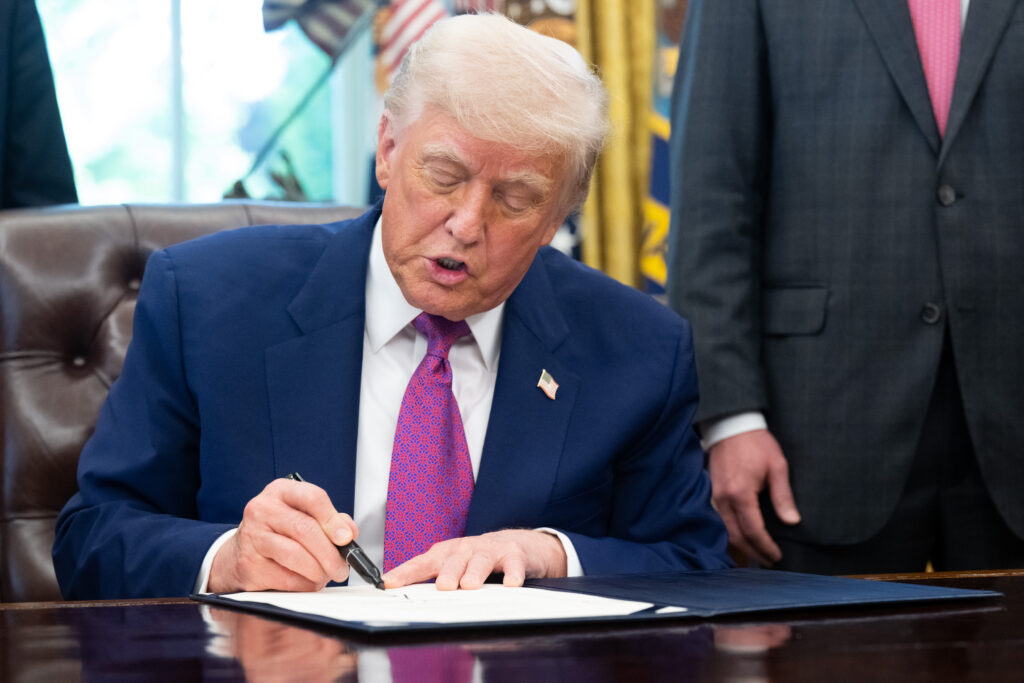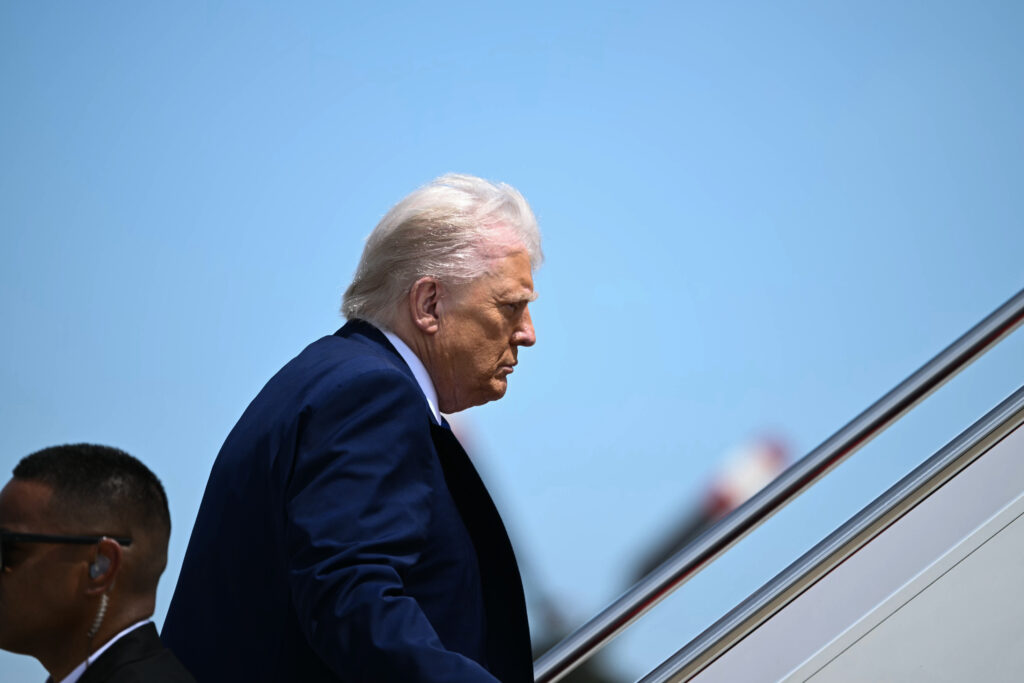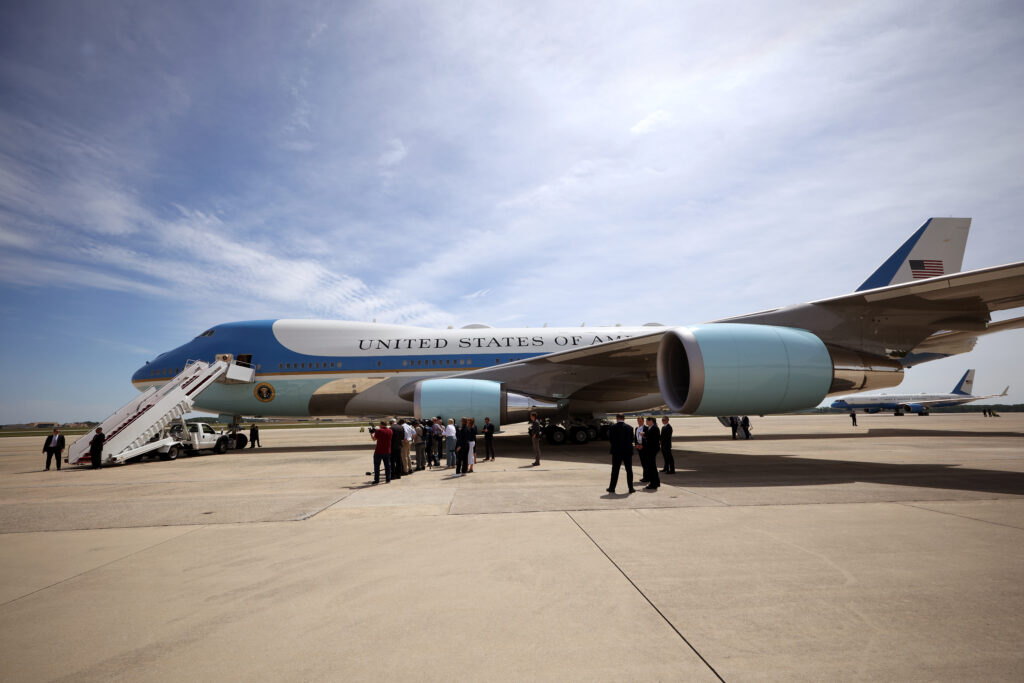AFP Asia Business
Trump heads to the Gulf eyeing deals amid diplomatic offensive
Donald Trump will arrive in Saudi Arabia on Tuesday on the first leg of a Gulf tour that will also take him to Qatar and the United Arab Emirates, eyeing business deals even as accords on the Middle East’s hotspots will likely be harder to reach.The trip marks the US president’s first major visit abroad of his second term, with the White House saying he looked forward to a “historic return” to the region.Eight years ago Trump also chose Saudi Arabia for his first overseas trip as president — when he memorably posed with a glowing orb and participated in a sword dance. His decision to once again bypass traditional Western allies to travel to the oil-rich Gulf states underscores their increasingly crucial geopolitical role — along with his own business relations in the region.In the days before the trip, the White House has played an instrumental part in hammering out a ceasefire between India and Pakistan, the release of an American hostage in Gaza and holding another round of nuclear talks with Iran. Those initiatives came after a surprise announcement by Trump last week of agreeing to a truce with the Iran-backed Huthi rebels in Yemen.- ‘Deals’ -But the focus during the tour of the Gulf will likely be locking down business agreements.”White House sources have indicated that the president will focus on ‘deals’,” wrote Daniel B. Shapiro, a distinguished fellow with the Atlantic Council’s Scowcroft Middle East Security Initiative.Riyadh, Doha and Abu Dhabi are expected to roll out the red carpet with a lavish royal welcome for the 78-year-old billionaire.”The president looks forward to embarking on his historic return to the Middle East” to promote a vision where “extremism is defeated in place of commerce and cultural exchanges”, Trump’s spokeswoman Karoline Leavitt said ahead of the trip.The Gulf states have positioned themselves as key diplomatic partners during Trump’s second term. Doha remains a major broker for negotiations between Hamas and Israel, while Saudi Arabia has facilitated talks on the war in Ukraine.Talk of returning to the kingdom has been circulating for months, with Saudi Arabia’s de facto ruler Crown Prince Mohammed bin Salman vowing to pour $600 billion into US trade and investments.”I’ll be asking the crown prince, who’s a fantastic guy, to round it out to around one trillion. I think they’ll do that because we’ve been very good to them,” Trump said in response to the offer.According to a Saudi official close to the defence ministry, Riyadh will push for securing the latest US F-35 fighter jets along with state-of-the-art air defence systems worth billions of dollars. “We will condition that the deliveries take place during Trump’s term,” the source told AFP.- Temporary ‘gift’ -On the ground in Saudi Arabia, residents expressed mixed feelings about what the trip would mean.”I expect that this visit will result in political decisions that will matter to the whole region,” Khalifa Oneizi, a 47-year-old Riyadh resident, told AFP. Others were less confident.”I am not optimistic about this visit or its results,” said Hamad Shahrani, a 62-year-old Saudi national.Efforts to push Saudi Arabia to recognise Israel are not likely to feature high on the agenda this trip, with Riyadh insisting a Palestinian state must be established before a deal can be brokered.Iran, meanwhile, is likely to feature prominently during the visit, following a fourth round of talks in Oman over the weekend.Controversy is also swirling over the president’s plans to accept a luxury Boeing jet from the Qatari royal family for use as Air Force One.Late Sunday, Trump went on the offensive amid a wave of criticism, saying the plane was a temporary “gift”.He later called the deal “a very public and transparent transaction”, and on Monday said before leaving Washington for his trip: “I would never be one to turn down that kind of an offer.”
Celebrations as Hamas frees US-Israeli hostage
The armed wing of Palestinian militant group Hamas handed over a US-Israeli hostage held in Gaza since October 2023 on Monday, ahead of a regional visit by US President Donald Trump.”The (Ezzedine) Al-Qassam Brigades have just released the Zionist soldier and American citizen Edan Alexander, following contacts with the US administration, as part of the efforts undertaken by mediators to achieve a ceasefire,” Hamas said in a statement.Israel’s military said he was back inside Israel to be “reunited with his family”.Flag-waving crowds gathered to greet the convoy carrying Alexander, and in Tenafly, New Jersey, where he grew up, large crowds celebrated his release.Close friends and family chanted his name and applauded at the news that Alexander had been freed, footage released by the Hostages and Missing Families Forum showed.The Israeli army later said he was being taken by helicopter to a hospital where he would “receive medical treatment” and “be reunited with other members of his family”.Israeli Prime Minister Benjamin Netanyahu hailed Alexander’s return, adding: “The Government of Israel is committed to the return of all hostages and missing persons — both the living and the fallen.”He credited “political pressure” from Trump and “our military pressure” for the release.The Forum in a statement urged Netanyahu to say he was “ready to negotiate a comprehensive agreement” to bring home all the hostages.Meirav Etrogbar, 52, a volunteer at the Forum, told AFP: “They should stop the war and bring all the hostages back home in a deal, not military pressure.”- ‘Intensification of fighting’ -Alexander’s release comes a day after Hamas revealed it was engaged in direct talks with Washington towards a Gaza ceasefire.”We affirm that serious and responsible negotiations yield results in the release of prisoners, while the continuation of aggression prolongs their suffering and may kill them,” a Hamas statement said.”We urge President Trump’s administration to continue its efforts to end this brutal war.” Alexander was the last living hostage in Gaza with American citizenship. His release came with Trump heading for Saudi Arabia on the first leg of a regional tour.On Monday, Netanyahu thanked Trump “for his assistance in the release”, and also said he had instructed a negotiating team to head to Qatar on Tuesday to discuss the further release of hostages.Netanyahu earlier said “Israel has not committed to a ceasefire of any kind or the release of terrorists but only to a safe corridor that will allow for the release of Edan”.Negotiations for a possible deal to secure the release of all hostages would continue “under fire, during preparations for an intensification of the fighting”, he added.Meanwhile, the UN- and NGO-backed Integrated Food Security Phase Classification (IPC) warned Monday that Gaza was at “critical risk of famine”, with 22 percent of the population facing an imminent humanitarian “catastrophe” after more than two months of a total aid blockade by Israel.Ahead of Alexander’s release, a Hamas source said that mediators informed the group that Israel would halt military operations for the handover of the 21-year-old soldier.The pause offered a much-needed respite for residents of the war-battered territory.Somaya Abu Al-Kas, 34, who had been displaced to the southern city of Khan Yunis, said that “calm settled over Gaza, there was no shelling, and no nearby aircraft, which is very rare”.But Um Mohammed Zomlot, 50, also displaced in Khan Yunis, said: “Everyone is afraid that the shelling might resume suddenly after the prisoner is released.”Gaza’s civil defence agency earlier reported at least 10 killed in an overnight Israeli strike on a school housing displaced people.- ‘Good faith gesture’ -After Hamas announced Sunday it would release Alexander, Trump hailed the “monumental news” in a post on social media, describing it as a “good faith gesture”.”Hopefully this is the first of those final steps necessary to end this brutal conflict,” he added.Egypt and Qatar, which along with the United States have mediated talks between Hamas and Israel, called it “an encouraging step toward a return to the negotiating table” in a joint statement.Of the 251 hostages seized during Hamas’s October 7, 2023 attack on Israel, 57 are still held in Gaza, including 34 the Israeli military says are dead.Israel ended a two-month ceasefire on March 18, ramping up its bombardment of the territory.Earlier this month, Israel’s government approved plans to expand its Gaza offensive, with officials talking of retaining a long-term presence there.Hamas’s 2023 attack on southern Israel resulted in the deaths of 1,218 people, mostly civilians, according to an AFP tally based on official figures.The health ministry in Hamas-run Gaza said Monday at least 2,749 people have been killed since Israel resumed its campaign, bringing the overall death toll since the war broke out to 52,862.burs-acc/srm/dcp/fec
US, China agree to slash tariffs as Trump says will speak to Xi
The United States and China announced Monday an agreement to drastically reduce tit-for-tat tariffs for 90 days, an outcome President Donald Trump dubbed a “total reset” as he said talks with counterpart Xi Jinping could soon follow.After the first meetings between Washington and Beijing since Trump ratcheted up his trade war, the world’s two biggest …
US, China agree to slash tariffs as Trump says will speak to Xi Read More »
Trump says would be ‘stupid’ to reject Qatari Air Force One gift
US President Donald Trump on Monday angrily dismissed concerns over his plans to receive a jet from Qatar to be used as Air Force One, saying it would be “stupid” not to accept such a gift.The offer from Qatar’s royal family to donate the $400 million 747-8 to be used as the US presidential plane raised major questions about ethics and security, but Trump played them down.”It’s a great gesture,” the 78-year-old billionaire told reporters at the White House when asked if the oil-rich Gulf state would expect anything in exchange.”I would never be one to turn down that kind of an offer. I mean, I could be a stupid person (and) say ‘no we don’t want a free, very expensive airplane.'”Qatar’s offer came after Trump repeatedly complained of delays and cost overruns in aerospace giant Boeing’s contract to provide two new Air Force One jets to replace the current aging models.Trump responded particularly angrily when asked if he would use the jet in a personal capacity after he left the presidency.”You should be embarrassed asking that question,” Trump told a reporter. “They’re giving us a free jet. I could say, no, no, no, don’t give us I want to pay you $1 billion or $400 million, or whatever it is. Or I could say, thank you very much.”Trump said that instead it would be donated to his future presidential library as an exhibit, in the same way that Ronald Reagan’s library holds a former Air Force One jet.- ‘Nuclear-grade graft’ -Qatar swiftly sought to downplay the uproar, saying the jet would not be a gift.”The possible transfer of an aircraft for temporary use as Air Force One is currently under consideration between Qatar’s Ministry of Defense and the US Department of Defense,” said Ali Al-Ansari, Qatar’s media attache to Washington.But the plan has raised major ethical questions, as the US Constitution prohibits government officials from accepting gifts “from any King, Prince or foreign State.”It has also raised deep security concerns about using a plane donated by a foreign power for use as the ultra-sensitive Air Force One. The jet is designed to serve as a mobile command center for the president in case of an attack on America.Democrats slammed the plan.”Any president who accepts this kind of gift, valued at $400 million, from a foreign government creates a clear conflict of interest,” said a statement by four members of the Senate Foreign Relations Committee.The statement by Senators Cory Booker, Brian Schatz, Chris Coons and Chris Murphy said it also “raises serious national security questions, invites foreign influence, and undermines public trust in our government.” Murphy said separately that he would also block any arms sale to a “nation that is doing direct personal business with Trump,” describing Qatar’s proposed gift as “nuclear-grade graft.”- ‘Utmost transparency’ -Trump and the White House however claim the Qatari jet would be a gift to the US Department of Defense, which would also get around constitutional concerns.White House Press Secretary Karoline Leavitt said Qatar had “graciously offered” to donate a plane to the Pentagon but that the “legal details of that are still being worked out.””Any donation to this government is always done in full compliance with the law, and we commit ourselves to the utmost transparency, and we will continue to do that,” she told Fox News.Trump has long been unhappy with the current Air Force One jets — two highly customized Boeing 747-200B series aircraft that entered service in 1990 under president George H.W. Bush.Earlier this year Trump said his administration was “looking at alternatives” to Boeing following delays in the delivery of two new 747-8 aircraft.Trump also has a model of the future Air Force One in his handpicked red, white and blue colors on the coffee table in the Oval Office, in front of where he sits with foreign leaders.
Air Force One: iconic jet gets the Trump treatment
It is arguably the world’s most iconic plane, an instantly recognizable symbol of the US presidency. But now Air Force One — like many other American institutions once considered sacred — is getting the Donald Trump treatment.- A name, not a plane – Technically Air Force One is the callsign for whichever US Air Force plane, no matter how small, is carrying the US president.But most people identify it with the two heavily modified versions of the Boeing 747-200 jet liner that usually shuttle the US president around the world.The two current models, called the VC-25A in military speak, both entered service in 1990 during the presidency of George H.W. Bush.With its classic blue and white livery the current jumbo jet has become so famous that it even spawned a Hollywood thriller named after it, starring Harrison Ford.Sometimes presidents use smaller planes based on Boeing 757s for shorter flights, dubbed “Baby Air Force One.”- Presidential suite -“Big Air Force One” boasts luxury features fit for a commander-in-chief.The president himself has a large suite that includes an office with leather chairs and a polished wooden desk — a space Trump used for a press conference to sign a proclamation renaming the Gulf of Mexico as the Gulf of America.A medical suite on board can also function as an operating room, should the worst happen.There are special cabins for senior advisors, Secret Service members and 13 traveling press. It has two galleys that can feed 100 people at a time, all on specially branded crockery.- Special features – But the plane’s main role is keeping the US president safe.Inflight refueling capability means it can stay in the air almost indefinitely.A hardened electronics system protects against electromagnetic pulses — whether from nuclear explosions or hostile jammers — “allowing the aircraft to function as a mobile command center in the event of an attack on the United States,” the White House said.Those communications also keep Trump constantly in touch with the ground — and able to send social media posts in mid-air.The jet also has top secret air defenses, according to aviation specialists.These reportedly include countermeasures that can jam enemy radars and infrared tracking systems, plus dispensers for chaff — metal shavings that distract radar-guided missiles — and flares that blind heat-seeking missiles.- Historic roles – Inevitably, Air Force One has also played its role in history.The first specially-designed jets were brought in by John F. Kennedy in 1962, using modified Boeing 707s. One of those jets brought Kennedy’s body back to Washington after his assassination in Dallas in 1963.Then in 2001, George W. Bush took to the skies aboard Air Force One after the 9/11 attacks on New York and Washington.- Trump obsession – But Trump has long had something of an obsession with the presidential jets.The Republican has consistently sought to upgrade them, agreeing a deal with Boeing in 2018 during his first term for two new models based on the newer 747-8 jet.He also dreamed up a new color scheme — replacing the one largely in place since Kennedy’s time — with a deep red stripe down the middle of the aircraft and a dark blue underbelly.Trump likes the new look so much that he still has a model of it on his coffee table in the Oval Office, and showed it off at his inauguration for a second term.But now he has repeatedly complained about delays and cost overruns.”We’re very disappointed that it’s taking Boeing so long… We have an Air Force one that’s 40 years old,” Trump said on Monday.”You look at some of the Arab countries and the planes they have parked alongside of the United States of America plane, it’s like from a different planet.”One of those same Arab countries, Qatar, has now offered the United States a Boeing 747-8 from the royal family to use as a stopgap Air Force One.But with ethical concerns and security worries about using a plane from a foreign power for such an ultra-sensitive purpose, it’s unclear whether the scheme will ever leave the ground.

